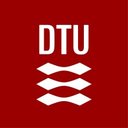DTU – Technical University of Denmark
PhD Scholarships in computational biology and single-cell analysis – DTU Bioengineering
Job Description
We are looking for a highly motivated computational student for a 3-year PhD position, to join the group of Associate Professor Kedar Natarajan from the 15 October 2024 or as soon as possible.
Our group investigates mechanisms underlying cell-fate decisions in stem cells (ES/iPS) and during differentiation to cell types of the central nervous system (CNS). To achieve this, we use patient-derived and disease specific hiPSC and their differentiation to neurons, microglia and model neurodevelopmental trajectories through single-cell profiling including single-cell transcriptomics, ATAC-seq, multi-omics and spatial transcriptomics. We also develop and leverage computational approaches for identifying gene regulatory networks and candidate perturbation to study systems levels changes and specific underlying mechanisms. In this new project, we aim to develop and study regulatory networks driving formation of neuronal, glial cells from patient and disease-specific stem cells. The project will involve analysis of public and in-house single-cell and spatial datasets to study gene regulatory networks and build methods for integrative analysis and target predictions.
The group is highly collaborative and interdisciplinary, and is part of PSBT section at DTU Bioengineering. The candidate will interact with with other groups at DTU Bioengineering, Health Technology and international partners. More details can be found at group page (http://www.bioengineering.dtu.dk/Kedar-Natarajan)
Responsibilities and qualifications
You will perform computational analysis of single-cell genomics (scRNA-seq, scATAC-seq) and bulk datasets (RNA, ATAC, ChIP-seq) from ES/iPS differentiation to neuronal and glial cells. This will include mining, reanalyzing public datasets and also in-house datasets. The candidate is expected to set up workflows/pipelines for standardized analysis; implement new tools, and also develop computational methods.
The candidate should have a two-year master’s degree in Bioinformatics, Computational Biology, Biostatistics or in a related quantitative field (e.g. Mathematics, Physics, Statistics), with documented experience in analysing, interpreting bulk and single-cell sequencing datasets. Prior experience with data integration, visualization, package and method development is favorable considered. Prior experience working in neuroscience fields, stem cell biology is also positively assessed. As a part of a multidisciplinary team and research environment, the candidate is expected to take leadership of the project, be learning oriented and work proactively within the group and with collaborators. In this specific project, you will be working closely with 3 other members (PhD and postdocs) incl. experimental postdocs in the group.
Profile
We are looking for a motivated and enthusiastic researcher with following competences:
Essential experience and skills:
- Master’s degree in Bioinformatics, Computational Biology, Neuroscience or in a related field
- Prior experience working with genome scale or big-data analysis of single-cell datasets (scRNA-seq, scATAC) and multi-omics.
- Proficiency with command line (Unix/Linux) and Fluency in Python or R
- High level of motivation, self-responsibility
- Proficiency in written and spoken English and ability to work in collaborative environment
Desirable experience and skills:
- Prior experience with analysis pipelines on computing cluster (Nextflow, Snakemake) and parallel computing
- Experience using collaborative tools (Git, Confluence)
- Prior experience in data visualization, package development and tools.
You must have a two-year master’s degree (120 ECTS points) or a similar degree with an academic level equivalent to a two-year master’s degree.
You will be primarily based at DTU Bioengineering, and interact locally with other bioinformatics colleagues and groups at Bioengineering and DTU Health Technology, as well as our national, international partners. A collaborative mindset is expected as well as a proven ability to work in teams and communicate scientific research through presentations and submitted manuscripts. Working independently and charting research direction are valued. If you are highly driven, you will have opportunities to write grants for further strengthening research opportunities and participate in the broader collaborations.
Approval and Enrolment
The scholarships for the PhD degree are subject to academic approval, and the candidates will be enrolled in one of the general degree programmes at DTU. For information about our enrolment requirements and the general planning of the PhD study programme, please see DTU’s rules for the PhD education.
Assessment
The assessment of the applicants will be made by Associate Professor Kedar Natarajan together with relevant project partners.
We offer
DTU is a leading technical university globally recognized for the excellence of its research, education, innovation and scientific advice. We offer a rewarding and challenging job in an international environment. We strive for academic excellence in an environment characterized by collegial respect and academic freedom tempered by responsibility.
Salary and appointment terms
The appointment will be based on the collective agreement with the Danish Confederation of Professional Associations. The allowance will be agreed upon with the relevant union. The period of employment is 3 years.
You can read more about career paths at DTU here.
Further information
Further information may be obtained from Assoc. Prof. Kedar Natarajan ([email protected])
You can read more about the lab at http://www.bioengineering.dtu.dk/Kedar-Natarajan and DTU Bioengineering at www.bioengineering.dtu.dk/english
If you are applying from abroad, you may find useful information on working in Denmark and at DTU at DTU – Moving to Denmark. Furthermore, you have the option of joining our monthly free seminar “PhD relocation to Denmark and startup “Zoom” seminar” for all questions regarding the practical matters of moving to Denmark and working as a PhD at DTU.
Application procedure
Your complete online application must be submitted no later than 24 June 2024 (23:59 Danish time).
Applications must be submitted as one PDF file containing all materials to be given consideration. To apply, please open the link “Apply now”, fill out the online application form, and attach all your materials in English in one PDF file. The file must include:
- Motivation letter of application, describing your relevant competences and how you will fit the group (max. 2 pages).
- CV containing education, prior research experience and skills relevant for the position.
- Grade transcripts and BSc/MSc diploma (in English) including official description of grading scale
- List of publications
- Contact information for 3 referees
Incomplete applications will not be considered. You may apply prior to obtaining your master’s degree but cannot begin before having received it.
Applications received after the deadline will not be considered.
All interested candidates irrespective of age, gender, disability, race, religion or ethnic background are encouraged to apply.
The Department of Biotechnology and Biomedicine (DTU Bioengineering) is an international leader in the areas of biotechnology and biomedicine. Our engineering approach to all aspects of biotechnology and biomedicine positions us as a valuable player with unique competences in a growing bio-based economy and with health systems transforming towards personalized medicine. We have a clear focus on the needs in the life science industry and point towards innovation, new businesses, and scientific services for the benefit of society. The department has extensive collaborations with national and international research units and industry. DTU Bioengineering has approx. 400 employees, of which 2/3 are scientific staff. The department is located at DTU Lyngby Campus.
Technology for people
DTU develops technology for people. With our international elite research and study programmes, we are helping to create a better world and to solve the global challenges formulated in the UN’s 17 Sustainable Development Goals. Hans Christian Ørsted founded DTU in 1829 with a clear mission to develop and create value using science and engineering to benefit society. That mission lives on today. DTU has 13,500 students and 6,000 employees. We work in an international atmosphere and have an inclusive, evolving, and informal working environment. DTU has campuses in all parts of Denmark and in Greenland, and we collaborate with the best universities around the world.



